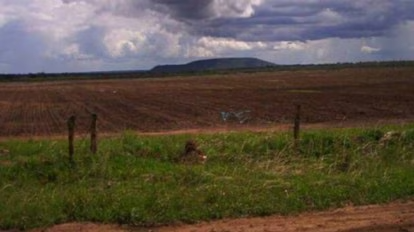In Jharkhand, a dispute over royal ‘Ratu’ land, at its root a contract from 1960s

Ranchi, Jharkhand – In Jharkhand’s Ratu region, a royal-era land conflict has returned to the spotlight. This time, the center of attention is a contract from the 1960s. The document has stirred tensions between the Ratu royal family’s descendants, long-time occupants, and local authorities. Although the land has changed hands over the decades, questions around its ownership remain unsettled.
A Royal Past with Modern Consequences
Ratu, located near Ranchi, once served as the seat of the Nagvanshi dynasty. After Independence, the Indian government abolished princely states and took control of their lands. Yet, many royal families managed to retain large estates through complex arrangements.
During this transition, several estates changed hands through verbal understandings or loosely worded contracts. One such agreement, signed in the 1960s, now stands at the heart of the present conflict. It involves a stretch of land reportedly leased or transferred by members of the royal family.
The 1960s Agreement Under Scrutiny
The contract in question reportedly outlined a lease or temporary transfer. Some members of the royal family claim it was valid for only 30 or 40 years. They argue that the land should have returned to their control after the term ended.
Meanwhile, current occupants insist they own the land legally. They say they bought the plots in good faith and have paid taxes regularly. Many also claim they received official approvals during their property transactions.
Legal experts are now studying the document’s language and validity. They’re also reviewing old land records to determine if the transfer violated any laws at the time.
Residents Fear Displacement
The land now hosts houses, schools, and businesses. Generations have lived here. For these residents, the idea of losing their homes is both shocking and painful.
“We’ve stayed here for more than 30 years,” said Ramesh Sahu, a resident. “We built our house legally and paid taxes. Now someone tells us we don’t own it?”
Many families have approached the district administration, demanding clarity. They fear eviction or long legal fights. Most of them were unaware of the 1960s contract until the dispute became public.
Authorities Step In
The Ranchi district administration has started verifying records. Officials from the land revenue, legal, and survey departments are jointly investigating. They plan to identify the exact land parcels involved and verify who occupies them today.
A few reports suggest that parts of the land were reserved for public use. This could further complicate ownership claims. The administration has not confirmed any official action yet, but it continues to monitor the situation closely.
The Legal Maze of Historical Land Transfers
Across India, similar conflicts emerge when old royal land contracts surface. Many of these agreements were not recorded properly. In some cases, they were never digitized or updated in government records.
“This case shows how unfinished paperwork from the past can become today’s crisis,” said Anamika Prasad, a land law expert in Ranchi. “We urgently need to digitize historical land records and clarify ownership rights.”
Legal experts say that old contracts often contain vague clauses. Without clear documentation, courts may need to rely on witness accounts, tax records, and occupancy details to decide ownership.
What Lies Ahead?
The Ratu land dispute could take years to resolve if it goes to court. Some believe a negotiated settlement may be quicker. This could involve compensation, legal validation of ownership, or land swaps.
Any major decision will likely affect hundreds of families. Authorities must balance legal fairness with the need to avoid mass displacements.
Observers believe that the government may step in to mediate between the royal descendants and current residents. If the contract proves invalid, new agreements could be drawn up to protect those living on the land.
A Broader Problem Across India
The Ratu case is not unique. Former royal estates in Rajasthan, Madhya Pradesh, Odisha, and Karnataka also face similar disputes. Some were never surveyed properly after 1947. Others were sold without clear terms.
India’s land reform process, though ambitious, left gaps. The lack of consistent record-keeping created confusion in many places. Experts say that solving today’s land issues requires modernizing the system and recognizing past mistakes.
Final Thoughts
The Ratu land dispute reveals how unresolved issues from the past continue to shape modern life. A contract written more than 60 years ago now challenges property rights in a growing town. Legal battles, emotional stress, and political pressure may follow — unless a balanced and fair solution emerges.
As the town of Ratu develops, its people face uncertainty. Their future may depend not only on court rulings but also on compassion, transparency, and responsible governance.






